The process of removing a bony flap from the skull area to operate the brain area is known as craniotomy.
It is the surgery for making a brain accessible for operation. it is commonly used for the treatment of brain cancer, brain tumour, brain aneurysm and in cases of accidental brain injury.
It has minimum invasion and hence is widely used.
In this process of craniotomy, a bony flap from the skull is temporarily removed for clear access of the brain part which is to be operated on, post-surgery the flap is put back in its position.
This helps in minimal skull opening and has good healing afterward.
Craniotomy cost in Germany is between USD 9000 to USD 11000. Patient has to stay in the hospital for 5 days and outside the hospital for 10 days. The total cost of the treatment depends on the diagnosis and facilities opted by the patient.The Cost of Craniotomy Surgery Includes:
The overall cost of the procedure also varies based on the patient's condition and preferences. Some of these factors are:
Listing approximate price of Craniotomy and some related procedures. The prices may change depending upon the centers and condition of the patient.
| Treatment name | Cost range |
|---|---|
| Craniotomy Surgery | USD 9000 to USD 11000 |
Before a craniotomy, your doctor may request blood tests, an MRI, an ECG, an X-ray, or a Brain CT scan. The whole cost of craniotomy therapy generally includes diagnostic and surgical procedures.
When a patient is in the hospital, the pharmacy and prescription expenses are included in the package. However, if the patient purchases medications outside of the hospital, they are not covered by the package.
The average hospital stay for individuals undergoing craniotomy for a brain tumor is three to four days. Patients who experience surgical complications may be asked to remain longer. They will also require follow-up testing, such as an MRI, CT scan, and blood tests, for the first year following the craniotomy, which won’t be a part of the package price.
For patients planning to travel abroad it is useful to know the price in destinations popular with medical travellers. The price for Craniotomy in different countries is approximately:
Popular Cities in Germany for Craniotomy are:
The process of craniotomy is done by neurosurgeon.
Listing popular specialists:
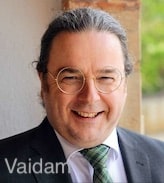
Consultant, 15 years of experience

Cervical canal stenosis Lumbar disc prolapse Spondylolisthesis Hematoma Cervical disc prolapses Brain contusions Intracerebral bleed Subarachnoid hemorrhage Aneurysm Brain tumours Hypertensive bleed Hydrocephalus

Chief, 21 years of experience

Neurooncology, Neurovascular surgery, Aneurysms, Aarteriovenous malformations
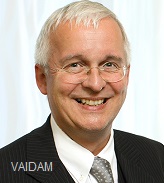
Chief, 35 years of experience

Vertebroplasty, Endoscopic intervertebral disc surgery, Neuronavigation for spinal and cranial surgery
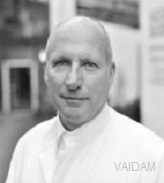
Chief, 32 years of experience

Minimal invasive surgery for brain tumors, Arterio-venous malformations
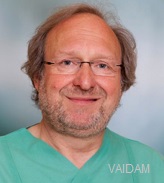
Head of Department, 27 years of experience

CyberKnife, Gamma Knife, Minimally Invasive Spine Surgery, Nerve Decompression, Nerve Reconstruction
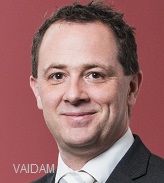
Chief, 27 years of experience

All types of spinal surgeries, Surgical treatment of degenerative spinal diseases, Spinal tumours and inflammations, Spinal cord stimulation, Surgical treatment of fractures
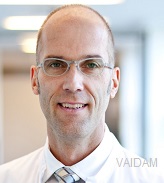
Prof. Dr. Med. Michael Stoffel
Chief, 28 years of experience

Microsurgical treatment of herniated discs, Neuronavigation, Radiosurgery, Laserstereotaxy
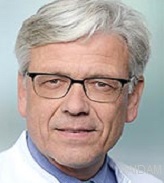
Senior Consultant, 34 years of experience

Neurosurgery, Spine surgery, Cyberknife, Deep Brain Stimulation (DBS)
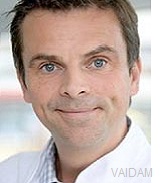
Consultant, 24 years of experience

Degenerative spinal diseases, Traumatic changes in the cervical spine, Tumors of the spinal column, Neurosurgery

Consultant, 29 years of experience

Neurosurgery, Treatment for hydrocephalus, Trigeminal neuralgia, Spinal diseases
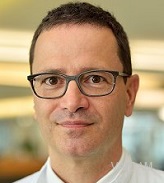
HOD, 27 years of experience

Treating brain tumors, Gliomas, Meningiomas, Parkinson’s disease, Spinal surgery
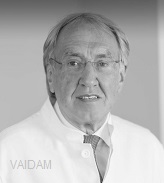
Head of Department, 39 years of experience

Lumbar disc herniation, Cervical disc herniation, Thoracic disc herniation, Lumbar spinal stenosis, Cervical spinal stenosis, Artificial intervertebral discs and spinal tumors
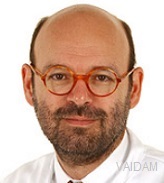
Prof. Dr. med. Michael Buchfelder
Chief, 21 years of experience

Spinal surgery, Endoscopic interventions, Acoustic neuroma, Surgical treatment of epilepsy, Treatment of aneurysms, Hemangiomas

Prof. Dr. med. Gabriele Schackert
Director, 32 years of experience

Tumor surgery, Skull base surgery, Acoustic neuromas, Intramedullary tumors, Molecular analysis of brain tumors and aneurysms
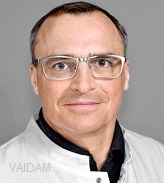
Prof. Dr. med. Stephan B. Sobottka
Consultant, 21 years of experience

Tumor surgery, Vascular neurosurgery, Deep brain stimulation, Spinal surgery
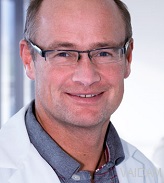
Consultant, 16 years of experience

CyberKnife, Gamma Knife, Minimally Invasive Spine Surgery, Nerve Decompression, Nerve Reconstruction
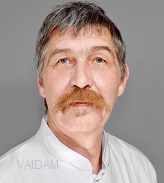
Senior Consultant, 19 years of experience

Tumor surgery, Skull base surgery, Acoustic neuromas, Intramedullary tumors, Gliomas, Brain tumors, Aneurysms
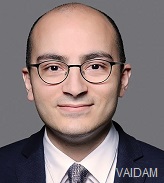
Consultant, 14 years of experience

Treatment of benign and malignant brain tumors, Meningiomas, Brain metastases

Consultant, 22 years of experience

Neuro-oncology, Molecular pathogenesis of brain tumors, Vascular neurosurgery, Brain aneurysms
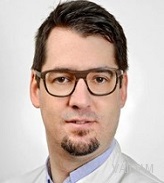
Consultant, 24 years of experience

CyberKnife, Gamma Knife, Minimally Invasive Spine Surgery, Nerve Decompression, Nerve Reconstruction
In terms of mortality rate, zero death is reported in craniotomy procedures. However, it reduces the surgery time and postoperative hospital stay.
It has better outcomes and fewer side effects.
Our Services for Craniotomy in Germany
Transparent - Professional - Without Hassles
To remove a brain tumor, a neurosurgeon makes an opening in the skull. This operation is called a craniotomy. Whenever possible, the surgeon attempts to remove the entire tumor. If the tumor cannot be completely removed without damaging vital brain tissue, your doctor may remove as much of the tumor as possible.
The malignancy of the tumor can only be established post histopathy of the tumor sample. IF it turns out to be cancerous, additional treatment protocol may be advised.
One is not allowed to eat or drink anything before a craniotomy surgery.
The patient should stop taking blood-thinning medications. He should also stop taking medicines like Clopidogrel, Plavix and Warfarin.
It depends upon the osteopathy reports of the tumor sample.
Yes it is true, awake craniotomy is usually done in those patients who have lesions in critical areas. But with advances in imaging/ surgery and brain mapping it is not used these days. Of course in places where such equipment is not available, it can be done. It difficult in many patients because of patient has to understand and be mature enough to lie still for 4 hours or so It is slightly uncomfortable too
Craniotomy is the surgery to remove the part of bone from skull for exposing the brain, the bone flap is being temporarily removed and then replaced after brain surgery.
Yes, Craniotomy is a serious surgery, it involves temporary removal of bone from the skull to repair in the brain. The procedure has various risks which makes it a serious surgery.
Craniotomy has got several risks such as bleeding and infection just like other type of brain cancer surgery.
Craniotomy is done to treat various conditions such as brain tumors, traumatic brain injury, hemorrahage, aneursysms. Damaged tissue, abscesses, epilepsy and facial pain.
5 days in the hospital.
The patient has to stay in the ICU for at least a night or two depending on the progress of his/her condition post-surgery. IVs, monitors and bladder catheters are removed in the morning following the surgery.
The patient is allowed to eat a normal breakfast and he/she can walk on the first day after the surgery.
The patient has to stay in the ICU for at least a night or two depending on the progress of his/her condition post surgery. IVs, monitors and bladder catheters are removed on the morning following the surgery. The patient is allowed to eat a normal breakfast and he/she can walk on the first day after the surgery.
It will take around three to five hours to do craniotomy, if you are undergoing regular craniotomy.
Your doctor will explain you about all these. You need to undergo blood test, diagnostic test and neurological examination before the surgery.
Skin incisions are usually made behind the hairline. A hair sparing technique is used, where only a 1/4-inch wide area along the proposed incision is shaved. The skin and muscles are lifted off the bone and folded back. Next, small burr holes are made in the skull with a drill. Similar to using a jigsaw, the surgeon cuts an outline of a bone window .The cut bone flap is lifted and removed to expose the protective covering of the brain and the bone flap is safely set aside and will be replaced at the end of the surgery. The dura is opened to expose the brain. Varieties of small instrument are used to work deep inside brain, after the problem has been removed or repaired, any retractors are removed, and the dura is closed with sutures. The bone flap is put back in its original position and secured to the skull with titanium plates and screws (Fig. 5). The plates and screws remain permanently to support the area. At last muscles and the skin are sutured back.
Walking and taking personal care is allowed after a day of the craniotomy surgery. Strenuous activities like work-outs, lifting heavy weights and strong exertions should be avoided for at least four to six weeks.
There is no such restriction on the neck movement.
It depends on the occupation of the patient. Strenuous work is best avoided for longer periods until his/her physical strength is regained. Normally, patients are allowed to resume their work after two to four weeks post-surgery.
It depends on the occupation of the patient. Strenuous work are best avoided for longer periods until his/her physical strength is regained. Normally, patients are allowed to resume their work after two to four weeks post surgery.
It will take around 4 to 8 weeks to recover from surgery, you will feel tired for several weeks after surgery, you may also have some headache and problems in concentrating. The cuts will be sore for about five days after surgery.
Some of the side effects of Craniotomy are scars, injury in head region, facial nerve damage, infection of the bone flap or skin, seizures and brain swelling.
Craniotomy requires hospital stay of about three to seven days. The stay in hospital depends on your condition.
The risk of rare and it has the potential to interfere with memory, speech, vision, muscle control, coordination an balance. Other potential risks that are specifically associated with brain surgery include coma, blood clots, hemorrhaging or swelling of the brain, stroke and seizures.






NABH Certified Healthcare Discovery Platform
Vaidam is NABH certified healthcare discovery platform that will connect you to top-notch medical experts, hospitals, wellness options, and trusted travel partners to help identify and make the right healthcare choices.

Researched & Personalized Treatment Plan - Under One Roof
You can search for the best hospitals, read about them, view photographs of the facilities at the hospitals and the places at which the hospitals are located, and check the cost of treatment.

Quality Treatment Within Your Budget
As soon as you post an enquiry, the patient relation team will collect details from you, share them with the doctors and hospitals on Vaidam's panel, and get a personalized treatment plan. We research to get quality treatment within your budget.

Treatment to Travel
Vaidam concierge assists patients, to get medical Visa, the best airline fares and arrangements for your stay. Our concierge also helps you with daily travel, language, and food concerns. Vaidam does everything to be your perfect host. All of Vaidam’s services are free of cost to patients.

International Reach
Vaidam Health has network in 15+ countries, which includes India, Turkey, UAE, Germany, South Korea, Thailand, Malaysia, Spain.
Note: Vaidam Health does not provide medical advice, diagnosis or treatment. The services and information offered on www.vaidam.com are intended solely for informational purposes and cannot replace the professional consultation or treatment by a physician. Vaidam Health discourages copying, cloning of its webpages and its content and it will follow the legal procedures to protect its intellectual property